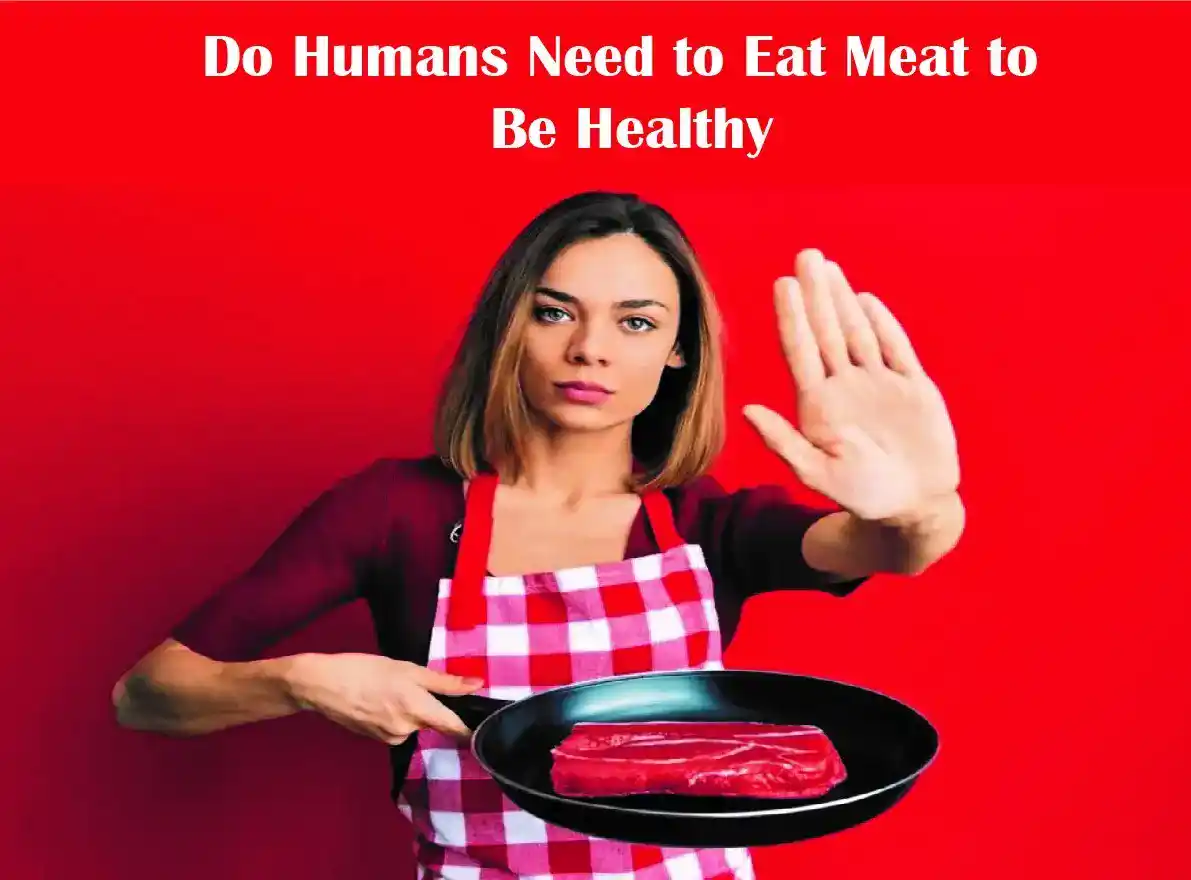Do Humans Need to Eat Meat to Be Healthy? Tech Foodie
The dispute over whether humans need to eat meat to be healthy has risen in today’s health-conscious society. The conventional belief that eating meat is necessary for human health is being questioned as vegetarianism, veganism, and plant-based diets become more popular. This article explores the many facets of this issue to offer a thorough grasp of whether people need to consume meat to be healthy.
It has long been argued that meat is a major source of protein and other vital components in the human diet. But as dietary preferences change, more and more people are embracing regimens that forbid or restrict meat consumption. The dilemma is whether eating meat is important for human health or whether alternative diets may offer sufficient nourishment.
The Nutritional Value of Meat
Red meat is rich in high-quality protein, iron, zinc, and vitamin B12. These nutrients are crucial for various bodily functions, including muscle growth, oxygen transportation, and neurological health. Meat is a complete protein source, providing all essential amino acids for human health.
Plant-Based Alternatives

Plant-based diets offer a variety of alternatives that can replace the nutrients found in meat. Legumes, tofu, tempeh, nuts, and seeds are excellent protein sources. Leafy greens, lentils, and fortified foods can provide iron, while vitamin B12 can be obtained from fortified foods and supplements.
1. Protein Intake and Adequacy
Protein is essential for repairing tissues and building enzymes and hormones. While meat is a concentrated protein source, plant-based foods can also provide adequate protein when consumed in sufficient quantities. Combining different plant protein sources can enhance protein completeness.
2. Essential Nutrients from Animal Sources
Certain nutrients, such as vitamin D3 and omega-3 fatty acids, are more readily available in animal products. However, these nutrients can also be obtained from supplements and fortified foods for those following plant-based diets.
Health Benefits of Plant-Based Diets
Plant-based diets have numerous health benefits, including a lower risk of heart disease, diabetes, and certain cancers. Such diets tend to be lower in saturated fats and cholesterol and higher in fiber, antioxidants, and phytonutrients.
1. The Environmental Impact of Meat Production
Meat production contributes significantly to greenhouse gas emissions, deforestation, and water consumption. Plant-based diets can reduce an individual’s carbon footprint and help mitigate environmental challenges.
2. Ethical Considerations
The ethical treatment of animals is a driving force behind adopting vegetarian and vegan diets. Many individuals choose these diets to avoid contributing to the suffering of animals raised for food.
3. Balancing Meat Consumption
While meat can provide essential nutrients, excessive consumption of processed and red meats has been linked to health risks. A balanced approach with lean meats and ample plant-based foods can optimize health outcomes.
4. Cultural and Regional Influences
Cultural norms and regional availability of food often influence dietary habits. In some societies, meat is a central part of traditional dishes and social gatherings.
Potential Health Risks of High Meat Diets
High consumption of certain types of meat has been associated with an increased risk of chronic diseases, including cardiovascular issues and certain types of cancer. Moderation and variety are key to minimizing these risks.
1. Moderation and Health
Whether one consumes meat or follows a plant-based diet, moderation is essential. A well-balanced diet that includes a variety of nutrient sources is more likely to promote overall health and well-being.
2. The Role of Genetics
Genetic factors can influence how individuals metabolize nutrients from different sources. Some people may have specific dietary requirements based on their genetic makeup.
Conclusion
In conclusion, humans do not necessarily need to eat meat to be healthy. A plant-based diet can provide all the essential nutrients required for optimal health. However, lean and unprocessed options are preferable for those who choose to include meat in their diets. It’s important to consider individual nutritional needs, ethical beliefs, and environmental considerations when making dietary choices.
FAQs
Yes, a well-balanced plant-based diet can provide adequate protein by including various protein-rich foods.
Excessive consumption of red meat has been linked to an increased risk of heart disease and certain cancers.
Plant-based diets can meet vitamin, and mineral needs through careful food selection and, if necessary, supplementation.
Yes, reducing meat consumption can help lower greenhouse gas emissions and reduce the environmental impact of food production.
Individual health goals, cultural preferences, and ethical considerations vary, making the optimal diet a personalized choice.



